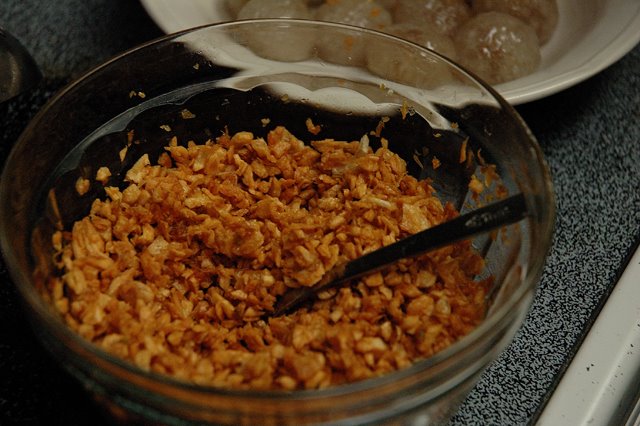Does the quality degrade? Yes, yes, a thousand times yes. Garlic (like onions and other members of the allium family) begins to undergo chemical changes the moment you cut into it. It's the same phenomenon that causes you to tear up when you cut into an onion.
Quoting liberally from Wikipedia's article here...
The phytochemicals responsible for the sharp flavor of garlic are produced when the plant's cells are damaged [...] The resultant compounds are responsible for the sharp or hot taste and strong smell of garlic. Some of the compounds are unstable and continue to react over time.
Ever notice how garlic becomes sweeter and far less pungent with even a brief sautee? That's due to the instability of these flavorful compounds and how they break down when cooked.
A large number of sulfur compounds contribute to the smell and taste of garlic. Allicin has been found to be the compound most responsible for the "hot" sensation of raw garlic [...] The process of cooking garlic removes allicin, thus mellowing its spiciness.
If you're defining "quality" as how well the preserved product maintains the same characteristics and flavors as the fresh version, this is already quite degraded. It may still have its uses but don't expect this to be even remotely substitutable for fresh garlic.
Is it safe to eat after a full week? Possibly, but very difficult to verify at home. @rumtscho's comment nails it: if this was sufficiently dehydrated, it might be okay (in which case it will be even further from fresh garlic in terms of flavor and usage) but that is unlikely, and this should be treated like any other cooked food.
If you want to maximize the shelf life of your garlic, just keep it whole! Unpeeled garlic will keep for weeks if kept cool and dry, and you can break off individual cloves as you need them. All that it takes to ready one for cooking is a heavy pot to smash the clove with and a quick pass with a knife.

